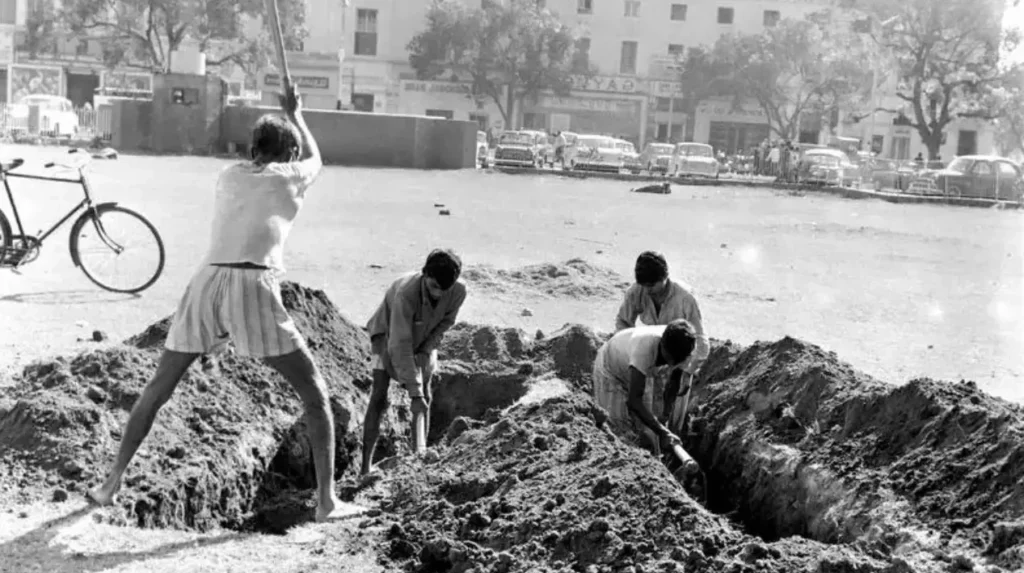When Darkness Swallowed Doaba
Hey, grab a seat, because this one’s a time machine straight to 1971! A recent blackout in Jalandhar, triggered by escalating India-Pakistan tensions, has yanked Doaba’s residents back to the nerve-wracking days of the Indo-Pakistani War. Picture this: entire towns plunged into pitch-black silence, sirens wailing like banshees, and the distant roar of warplanes keeping everyone on edge. That was life in Doaba 53 years ago, and for folks in Jalandhar and Hoshiarpur, those memories hit like a punch to the gut. Let’s dive into the stories of a region that didn’t see battle but felt war’s icy grip.
In December 1971, India and Pakistan clashed over the Bangladesh Liberation War, a brutal 13-day conflict that carved Bangladesh out of East Pakistan. Doaba, nestled in Punjab, was far from the front lines, but war’s shadow loomed large. “Blackouts were our nightly ritual,” says Harish Kumar, an 80-year-old from Jalandhar’s Kot Kishan Chand. “As soon as the sun dipped, every light—homes, shops, streets—went out. Total darkness. One stray bulb could’ve painted a bullseye for enemy planes.” The fear was real: nobody knew when an airstrike might come, and the government wasn’t taking chances.
Explosions and Whispers in the Night
One heart-stopping moment etched in Doaba’s memory? The explosion at the Army Depot in Suranussi, just outside Jalandhar. “It shook the ground,” Harish recalls. “We thought the war had reached us.” Miraculously, no one died, but it was a screaming reminder that danger wasn’t as far away as they hoped. Night after night, families huddled in darkness, straining to hear the drone of aircraft or the shriek of sirens. “It was like living in a ghost town,” says Krishna Arora, 72, who was a college student back then. “The only sounds were planes and those eerie sirens. We’d sit, hearts pounding, wondering if we’d see morning.”
Daytime brought a strange normalcy. Markets buzzed, students trudged to college—but with rules. “Our principal banned white clothes,” Krishna laughs. “Too visible for enemy pilots, apparently. Even picking an outfit felt like a war strategy!” Yet, beneath the routine, fear simmered. Sukhdev Singh, 76, remembers his family’s blackout nights: “We sat in the dark, silent, like we were holding our breath. Sirens would scream, planes would hum, and we’d pray they weren’t coming for us.”
Soldiers, Sirens, and Silent Grief
Doaba’s connection to the war wasn’t just blackouts and sirens—it was personal. Hoshiarpur, a hub for military families, sent countless sons to the front. “You’d hear about a soldier’s death, and it’d rip your heart out,” says Gurdev Singh from Hoshiarpur. “Families waited days, sometimes weeks, for news. Was their boy alive? Nobody knew.” The emotional toll was brutal, even if bombs didn’t fall on Doaba’s soil. Randhir Singh, an 80-year-old ex-serviceman from Jalandhar Cantt, recalls the surreal haze for kids: “They didn’t get the war, but they felt it—the sirens, the soldiers everywhere, the grown-ups’ whispers. It was like a storm you couldn’t see.”
The recent blackout in Jalandhar, part of a civil defense drill amid 2025’s border tensions, flipped a switch in these elders’ minds. “It’s 1971 all over again,” Randhir says. “We hadn’t seen a blackout since then. It’s like the past snuck up and tapped us on the shoulder.” The drill, sparked by a deadly terror attack in Pahalgam, stirred old fears but also pride in Doaba’s resilience.
Why This Matters to You
Okay, you’re probably thinking, “Cool story, but why should I care about a war from 53 years ago?” Fair question! These memories aren’t just dusty history—they’re a gut-check about how war ripples far beyond the battlefield. Doaba’s story shows how ordinary people—shopkeepers, students, farmers—carry the weight of conflict, even miles from the fight. Today’s tensions with Pakistan, complete with mock drills and blackouts, echo that same uncertainty. It’s a reminder: peace is fragile, and the stakes are personal. Your town could be next, whispering in the dark, praying the sirens stay silent.
Plus, Doaba’s grit is inspiring. They kept markets open, sent kids to school, and held on to hope despite the fear. That’s the kind of backbone we all need when the world feels shaky. So, yeah, this matters—because it’s about courage, loss, and the human spirit, not just some old war.
The Buzz Online
The internet’s humming with Doaba’s throwback tales. People are sharing stories of grandparents’ war memories, with hashtags like #1971War and #DoabaStrong trending. Some joke, “Blackouts in 2025? Did we time-travel?” Others post heartfelt tributes to lost soldiers. It’s a mix of nostalgia, fear, and defiance—proof this story’s striking a chord. You gonna join the conversation or just scroll past like it’s another cat video?
Final Thought: Will You Remember?
Doaba’s 1971 memories are more than anecdotes—they’re a warning and a tribute. War’s scars linger, in hearts if not on land. As Jalandhar’s lights dimmed again, the past roared back, reminding us how close chaos can feel. So, what’s your move? Will you dig into your family’s stories, maybe call your grandma for her take? Or will you shrug and keep scrolling? Come on, don’t let these voices fade—Doaba’s ghosts deserve a listen.



